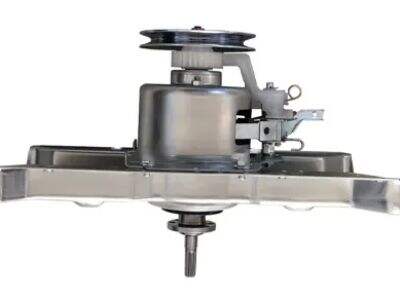If you ever see some unusual behavior coming from your washing machine, this is a sign to pay attention. For instance, if your washing machine is not spinning as it should or is making weird and loud sounds, your clutch might not be working properly. Clutch is one of the most important parts of a washing machine. This helps the drum inside to rotate and helps the whole machine operate efficiently. This is why knowing how to tell if your Automatic Washing Machine Clutch Inquiry is causing a problem, is really helpful. Understanding this can help us correct it before it is worse, and makes it harder to rectify.
Symptoms of a Bad Washing Machine Clutch:
One of the initial signs that your washing machine clutch may be failing to work properly is the strange sounds the machine starts to make. If there are grinding or squeaking sounds while the machine is operating, this may indicate that the washing machine clutch is worn out. Shirt dry after the spin, however, is yet another clue to wait for. This can indicate that the clutch is slipping and not allowing the drum to spin as it should for clothes to properly dry out.
Inspector for Clutch problems in Bosch washer?
There are a few simple tests that you can do at home to check for common clutch problems in your washing machine. First, run a small load of laundry in the machine and pay close attention to how it spins. If you observe anything strange, like the drum not spinning at all and there is a possibility of spinning a little, it may be the time of the New Washing Machine Clutch. You can also try spinning the drum by hand to see if it moves freely or feels difficult to turn. If it’s difficult to turn, that’s also an indication the clutch isn’t working properly and will need a more thorough inspection.
Does Your Washing Machine Clutch need to be Repaired?
If you think that your washing machine clutch might be having some issues, it is really important that you do something about it as soon as possible. A bad clutch may result in the machine ceasing to work correctly, as well as lead to more severe issues later on. Ignoring the symptoms of a faulty clutch can sometimes lead to damage that is expensive to repair or a complete replacement of the whole machine—something that nobody wants to do.
Top Reasons Your Washing Machine Clutch Is Bad & How to Fix It.
If you believe your washing machine clutch is failing, there are a few steps you can take to troubleshoot. First, check the belt that attaches the motor to the drum. A loose belt or a worn one can also create issues with the clutch from time to time. You should also inspect the clutch itself for signs of wear or damage, such as cracks or breaks. If you experience any of the above issues, it’s best to contact a professional that can come to repair or replace the clutch for you. It’s always safer to have someone with experience do these repairs.
Signs that you Have a Bad Washing Machine Clutch:
Here are a few things to try to determine if your washing machine clutch is bad. First and foremost, pay attention to any strange noises that the machine makes while it runs. Toothgrinding noises: If you hear grinding or squealing or banging noises, the clutch might be failing and need some attention. Or, you can inspect the drum to see if it wobbles or shakes while going through the spin cycle. That could mean that the clutch or another mechanism in the machine is stuck. Lastly, notice how well the machine drains water after each cycle; a faulty clutch can impact this aspect too.

 EN
EN
 AR
AR NL
NL FI
FI FR
FR DE
DE EL
EL HI
HI IT
IT JA
JA KO
KO PL
PL PT
PT RU
RU ES
ES SV
SV ID
ID SR
SR UK
UK VI
VI SQ
SQ TH
TH TR
TR FA
FA AF
AF GA
GA CY
CY BN
BN MY
MY
